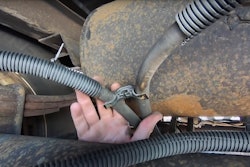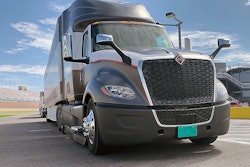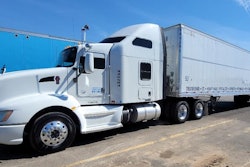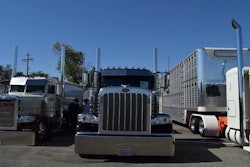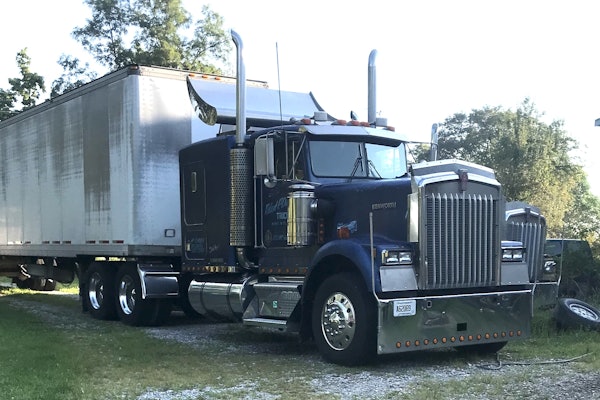Trucking news and briefs for Wednesday, Aug. 24, 2022:
Pilot working with autonomous truck maker to bring autonomous services to truck stops
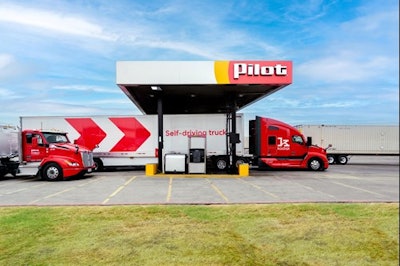 Pilot Company has partnered with autonomous truck tech firm Kodiak to develop autonomous trucking services at truck stops.
Pilot Company has partnered with autonomous truck tech firm Kodiak to develop autonomous trucking services at truck stops.
Pilot and Kodiak are in the process of creating an "autonomous truckport" in the Atlanta area to evaluate potential service offerings, including spaces to pick up and drop off autonomous trucking loads; conduct inspections; maintain and refuel trucks; and the ability to transfer data for processing, to aid in the development of new features on the trucks and mapping.
Pilot made a strategic investment in Kodiak and will join the company’s Board of Directors, Pilot said, with customers in mind.
Kodiak is significantly expanding its service footprint and partner network this year, the company said. In July, Kodiak announced a partnership with 10 Roads Express, a provider of time-sensitive surface transportation for the U.S. Postal Service, expanding the company’s service to Florida.

Earlier this year, Kodiak announced a new route between Dallas and Oklahoma City with CEVA Logistics and a route between Dallas and Atlanta with U.S. Xpress. The company has been delivering freight commercially since 2019 and currently has six routes that run regularly between Dallas and Houston, Austin, San Antonio, Atlanta, Oklahoma City and Jacksonville, Florida.
[Related: Autonomous truck crash draws federal attention]
FMCSA requests public comment on Trucking Alliance’s push for hair drug testing
While the Federal Motor Carrier Safety Administration cannot grant an exemption regarding hair follicle drug testing until further action is taken by the U.S. Department of Health and Human Services, the agency is accepting public comments on a request from the Trucking Alliance to amend federal regulations surrounding drug testing.
In an exemption request published in the Federal Register Tuesday, the Trucking Alliance requests that FMCSA "amend the definition of actual knowledge to include the employer's knowledge of a driver's positive hair test, which would require such results be reported to the FMCSA Drug and Alcohol Clearinghouse and to inquiring carriers.” Trucking companies who have "actual knowledge" of a driver's positive urine drug test are currently required to report that test result to the Clearinghouse.
Currently, federal law requires truck drivers to be tested via a urine sample, and FMCSA said it lacks the authority to grant the exemption until HHS has taken certain action regarding hair follicle drug testing.
The FAST Act transportation bill, signed into law by President Obama in December 2015, allows for hair follicle drug testing as a DOT-approved method, but not until HHS establishes guidelines for testing. The FAST Act mandated that those guidelines be developed within a year of the FAST Act becoming law, but HHS did not publish proposed guidelines until September 2020. HHS has not yet issued a final version of those guidelines.
Despite not currently being able to take action, FMCSA is still requesting public comment on the Trucking Alliance’s request, which can be made here through Sept. 23.
The Trucking Alliance is made up of a group of large carriers, including Cargo Transporters, Dupré Logistics, Frozen Food Express, J.B. Hunt, KLLM, Knight Transportation, Maverick Transportation, Schneider, Swift Transportation, U.S. Xpress and May Trucking Company.
Pennsylvania bill to guarantee trucker bathroom access stalls
An effort by a Pennsylvania legislator to guarantee access to bathrooms for truck drivers has stalled for now, and the man who introduced it won’t be back to continue seeking its passage.
In March, Rep. Jason Silvis, a Republican from Washington Township in south-central Pennsylvania, introduced a bill that would have required retail establishments, shippers, receivers and port terminals to provide truck drivers restroom access when delivering or picking up goods during regular business hours.
Bathroom access would have been enforced by the state Department of Health. The bill would require the department to issue a written notice for an initial violation, followed by a $300 fine for subsequent violations.
In a memo accompanying the bill, Silvis wrote, “Truck drivers are often on the road without proper restroom facilities for many hours, with their first chance of a break coming when they are either picking up or dropping off a shipment. Allowing these drivers access to businesses' facilities will prevent them from having to pull over on the highway, creating unsafe conditions for both themselves and other motorists.”
Thirteen other state legislators supported Silvis’ bill, which was assigned to the House of Representatives Transportation Committee, where it has remained.
Silvis said he “tried and tried and tried” to get the committee to act on it, but that didn’t happen. He said legislators in the state have no desire to pass bills that include mandates.
The future of the bill is in doubt as Silvis won’t be returning to Harrisburg when his term ends in November. He lost in a three-way primary election in May.
However, Silvis said he expects another legislator to advance the legislation in his absence. He urged Pennsylvania-based truckers to contact their legislators and advocate for the bill’s passage.
Silvis' legislation had the support of the Pennsylvania Motor Truck Association and the Owner-Operators Independent Drivers Association.
